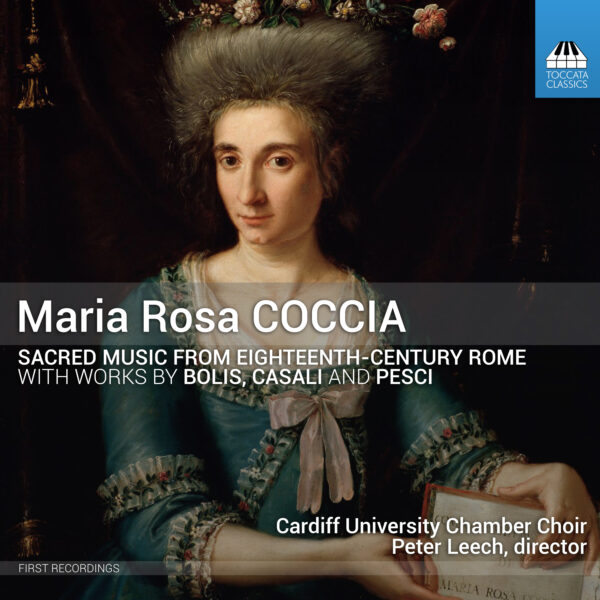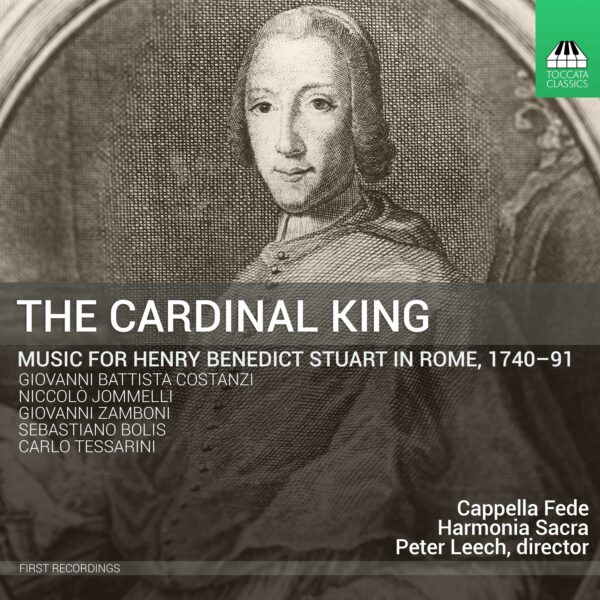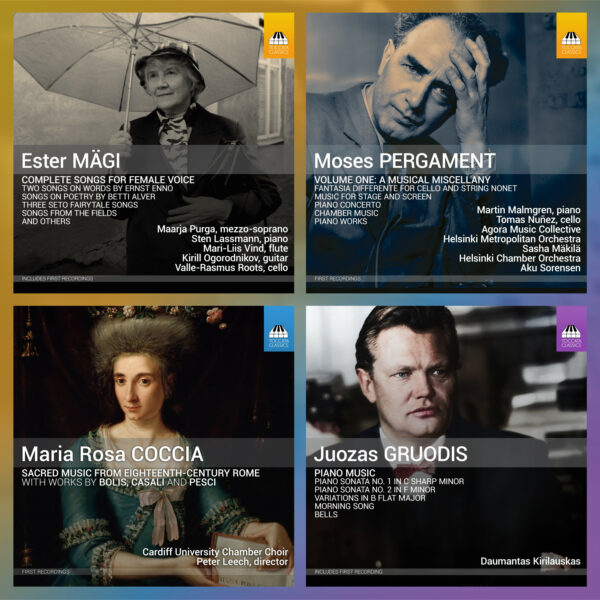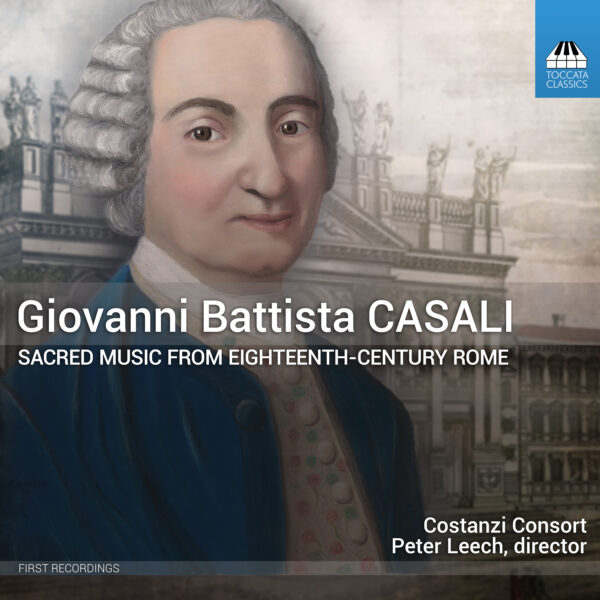Maria Rosa Coccia: Sacred Music from 18th Century Rome
The Roman Maria Rosa Coccia (1759–1833) was a musical phenomenon of almost Mozartian precocity, becoming the first female composer to be awarded the professional distinction of maestra di cappella – at the age of fifteen. But the church could not contemplate the idea of a woman in charge of the music-making in a religious establishment, and so she hit a stained-glass ceiling; she seems to have given up composition in the mid-1780s, not yet 30. The freshness and buoyancy of her writing up to that point give an indication of what might have been.
Cardiff University Chamber Choir
Peter Leech, director
Robert Court, chamber organ
Listen To This Recording:
Magnificat a4 concertato (13:52)
- I. Magnificat anima mea (1:49)
- II. Quia respexit (2:28)
- III. Quia fecit (2:50)
- IV. Fecit potentiam (1:12)
- V. Esurientes (1:27)
- VI. Suscepit Israel (1:42)
- VII. Sicut locutus (1:23)
- VIII. Gloria Patri (1:01)
Sante Pesci (1720-1786)
- Ave Maria a4
Maria Rosa Coccia
- Hic vir despiciens mundum (1774) (2:15)
Giovanni Battista Casali (1715-1792)
- Ad te levavi (2:47)
Maria Rosa Coccia
Sonata per Cembalo, Op. 1 (c. 1771-72)
Sonata No. 1
- II. Andantino (3:24)
Sebastiano Bolis (c. 1750-1804)
- Assoluzzione Quarta (3:12)
Coccia
- Veni sponsa Christi (2:07)
Casali
- Ave Maria a4 (3:55)
Coccia
Sonate per Cembalo, Op. 1
Sonata No. 2
- II. Andante (2:50)
Veni creator spiritus a4 concertato
- I. Veni creator spiritus (3:47)
- II. Tu septiformis munere (1:45)
- III. Hostem repellas longius (3:13)
- IV. Deo Patri sit gloria (3:26)
Dixit Dominus a8 pieno
- I. Dixit Dominus (2:01)
- II. Virgam virtutis (0:48)
- III. Tecum principium (0:54)
- IV. Juravit Dominus (1:07)
- V. Dominus a dextris tuis (0:37)
- VI. Judicabit in nationibus (1:03)
- VII. De torrente in via bibet (0:34)
- VIII. Gloria Patri (2:46)
First Recordings




Charlottesville Classical :
‘Coccia writes in the clean, elegant style of the middle Classical period. If you enjoy the choral works of Haydn and Mozart, you’ll find a lot to like in Coccia’s music. Her clarity of line ensures the text is always readily understandable. Yet her interplay between voices shows real imagination. And she has solid contrapuntal skills.
The Cardiff University Chamber Choir has a warm, transparent sound. Their a cappella singing is assured, and their phrasing is fluid. It gives the music a supple energy I quite enjoyed. Based on the quality of Coccia’s work here, I would love to hear her oratorio and large-scale cantatas. But this is a great start. ‘
—Ralph Graves, Charlottesville Classical
Fanfare Magazine :
‘Maria Rosa Coccia (1759–1833) is another female composer who fell into one of the crevices of history but is now being recovered and given new exposure. She clearly was unusually gifted; to quote director Peter Leech’s booklet notes, “In 1716 Pope Clement XI decreed that no musician could work professionally in Rome, or use the title maestro di cappella, without being a member of the Accademia di Santa Cecilia, the most prestigious musical congregation in the city… The decree stipulated that potential candidates for membership must pass a musical examination involving the extempore composition of a four—part fugue on a given subject (usually a fragment of a plainsong antiphon) in the presence of the examiners. On 28 November 1774… Maria Rosa Coccia, aged fifteen, became the first woman to take and pass this exam…” […]
All [the works here] very attractive. […]
The choir (10/9/4/6 SATB) sings attractively. […]
Toccata’s recorded sound presents the proceedings well; in addition to Leech’s lengthy and informative scholarly essay, the booklet offers artist bios for him, the choir, and organist Robert Court, plus texts and translations. This is an enticing initial offering, and one looks forward to more of Coccia’s music being recovered and presented on disc. Warmly recommended.’
—James A. Altena, Fanfare Magazine, February 2025
Fanfare :
‘The music by Coccia (and the others) is really quite good. […] The music by Coccia, well written and quite interesting […]. It certainly shows that she was adept at her craft’
—Bertil van Boer, Fanfare
Baker & Taylor CD Hotlist :
‘Not only is the music sumptuously beautiful, but the historical interest of these recordings is very significant. This disc should find a welcome home at any library with a collecting interest in classical music generally and in music by women composers in particular.’
—Rick Anderson, Baker & Taylor CD Hotlist